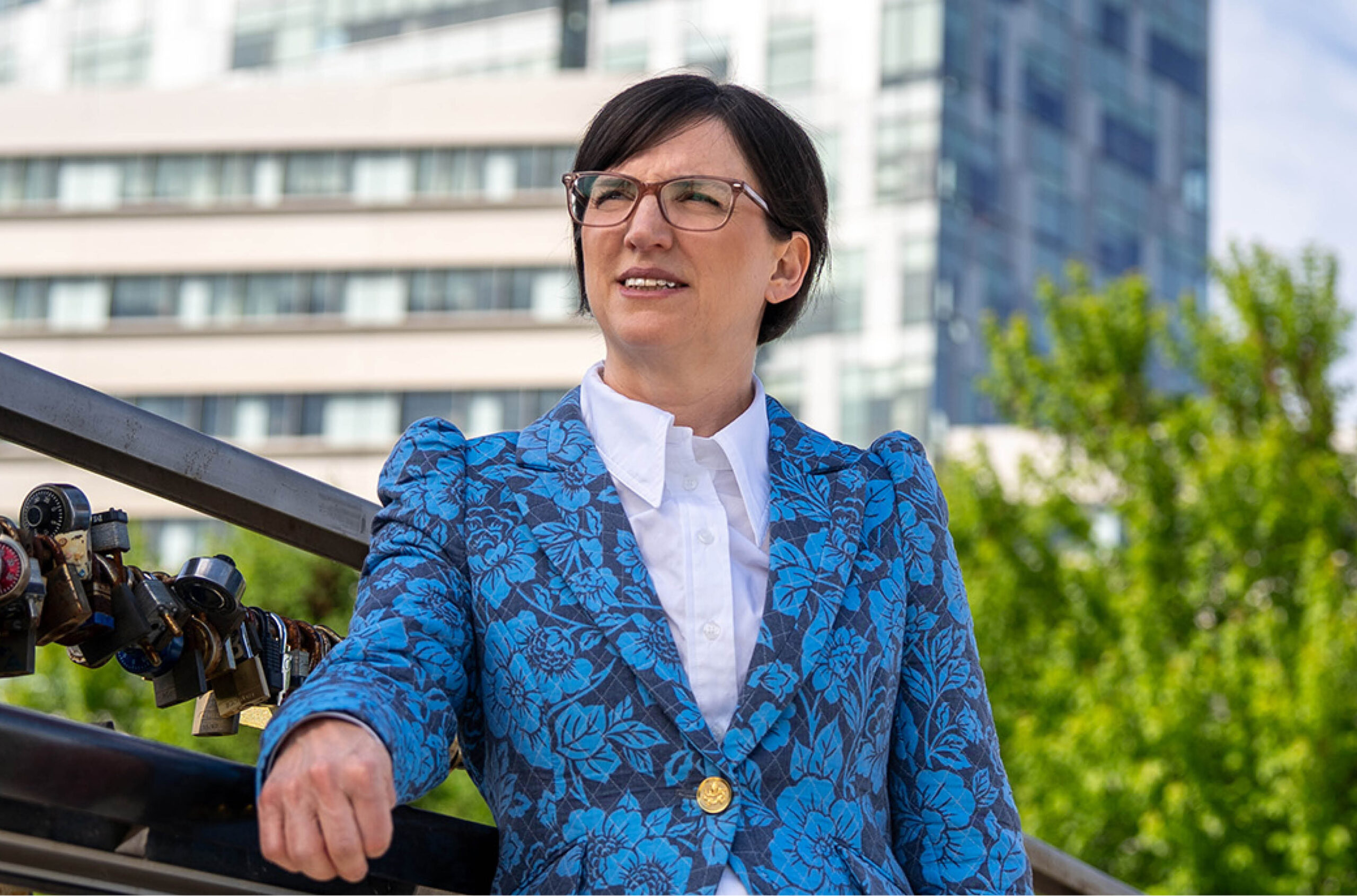Innovation and ethics in the age of AI – meeting Canadian student expectations for access and pace of change
Artificial intelligence has swiftly become a transformative force in higher education, reshaping the student journey from induction to learning outcomes.

The academic community has come a long way in 12 months, with positive attitudes toward AI now prevalent and with academics ranging from cautiously optimistic to enthusiastic about harnessing its potential to invest in students.
Now, as the sector transitions from a year of fact-finding in 2023 to a year of action in 2024, the challenge lies in distinguishing between accessible, ethical and evidence-based AI that enhances the student experience and protects the value of Canadian degrees and AI that does not. These decisions are compounded by the rapidly evolving expectations of students, underpinning the crises in the postsecondary market, showing that there is a clear and urgent need for a seamless integration of AI into the student experience sooner rather than later.
That’s why, in this year’s Global Student Wellbeing Survey (with responses from 10,189 students), conducted by Studiosity in partnership with YouGov, we sought to understand student expectations regarding AI-based support, among other key indicators to support educators with the months ahead. Here are some of the themes that emerged from the survey results:
1. Student expect AI support tools
The majority (54 per cent) of Canadian students expect their university to offer AI support tools. Notably, students who have been traditionally underrepresented and in some cases who report being under-supported are more likely to expect their university to offer AI support tools. For instance, of students who are also caregivers, 72 per cent expect to be provided with AI support tools.
Other groups for whom the majority expect AI support include: part-time students, students in any level of employment, students achieving middle-to-lower range grades (below 83 per cent), students for whom English is an additional language, all age groups (except 42-49), international students, and male students.
2. Students are motivated by stress, time, and money
Canadian students who felt regularly stressed in some way during their degree had the strongest expectations for AI support tools from their university. The biggest reasons for stress were “Not having enough time” and “Paying for my degree/study,” which may have a correlation with the expectation for more support and may be an area of further research.
The higher the students’ reported grade, the more likely they prioritized “speed” as a reason for needing AI support over improving grades; then, as a students’ reported grade fell, the importance of AI support for “grades” rose. This trend stops at students achieving a “Pass” grade, who prioritized speed and “avoiding embarrassment from a real person” as reasons for using AI support.
3. Students believe their university could be moving faster to adapt to AI technology
Alarmingly, 60 per cent of Canadian students believe their universities are not adapting quickly enough to include AI support tools. Similar sentiments are echoed globally, with 55 per cent in Australia and 64 per cent in the U.K. sharing this perception. This trend was reflected across all ages, genders, reported grades, year levels, and domestic or international status.
What’s next?
With more than 100 meetings with postsecondary leaders in the past six months, I have heard first-hand the interest and dedication of Canadian leaders and educators to support their students’ demands for accessibility, convenience, trust, and speed of feedback.
Ethics, student learning, transparency, sustainability at scale and AI that enables connection to university services and peers are always top of the agenda in these meetings. It’s no coincidence that the AI-powered Studiosity enables all of this, because it is a rare instance of generative AI built in collaboration with, and for, the post-secondary education sector exclusively, and not as an afterthought.
As the education landscape comes around to embracing the age of AI, we look forward to watching Canadian universities take charge of what they will – and will not – accept for their students and staff, and demanding more evidence, ethics, transparency of outcomes, and integration into wider teaching and learning ecosystems in a way that lifts community and belonging. Fortunately, educators are good at demanding evidence, what students need to see are leaders responding to calls – from both students and staff – to instigate change, to provide more accessible, faster support, and to navigate this urgent crossroads in the Canadian post-secondary sector.
Based on my calendar, the next few months promise to be just as busy as I continue to meet with postsecondary leaders about Studiosity+, and I can already see a trend of student-centric, fast-growing colleges setting the example and pace for the necessary adoption of ethical, scaled AI-for-learning in the fall.
Chris Helsby is vice-president for Canada at Studiosity, which provides ethical and accessible AI-powered academic feedback and study help, while also delivering powerful peer connection at scale. Studiosity partners with more than 200 postsecondary institutions in Canada, the U.K., Australia, and New Zealand.




Post a comment
University Affairs moderates all comments according to the following guidelines. If approved, comments generally appear within one business day. We may republish particularly insightful remarks in our print edition or elsewhere.
1 Comments
The link to the actual survey results should be provided so we can analyse the results on our own. A brief search of the Yougov and Studiosity sites was completed, and neither provided an obvious link to the survey results.